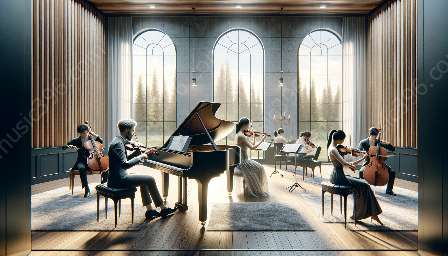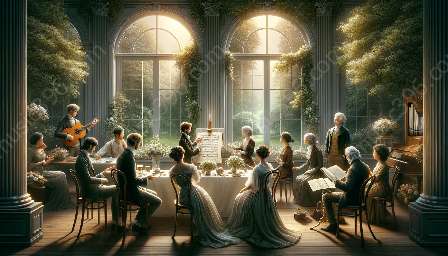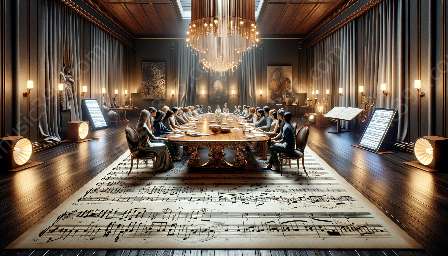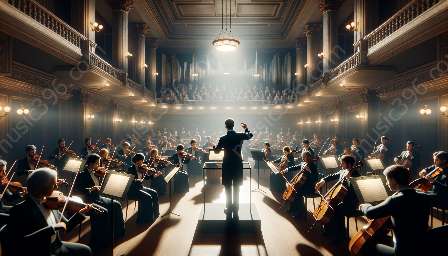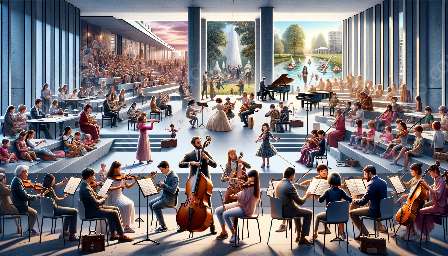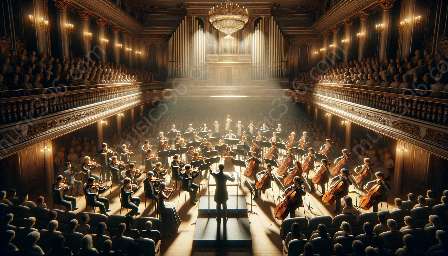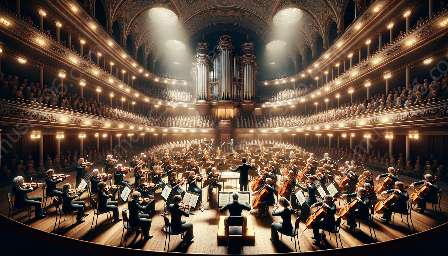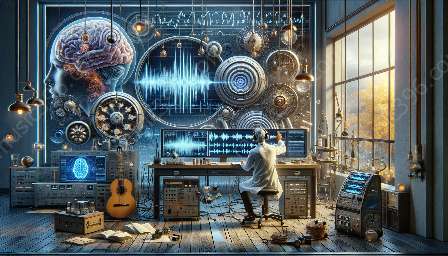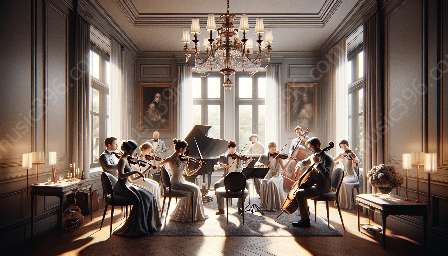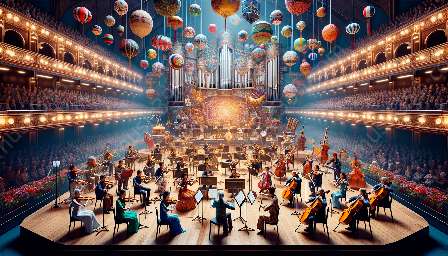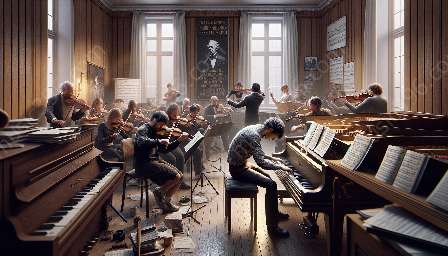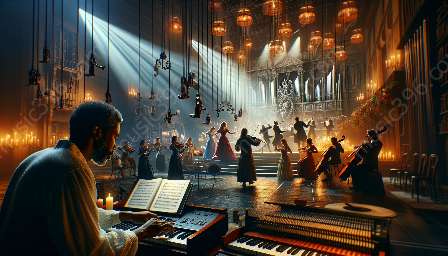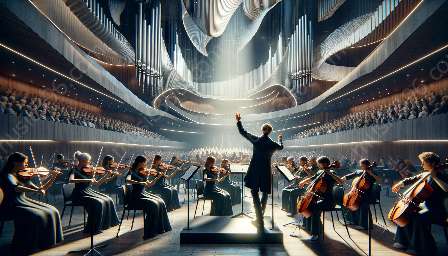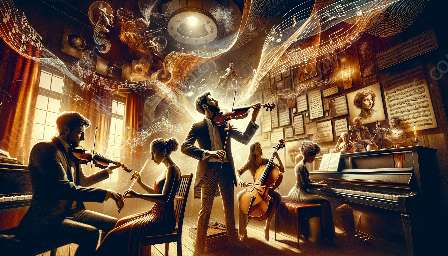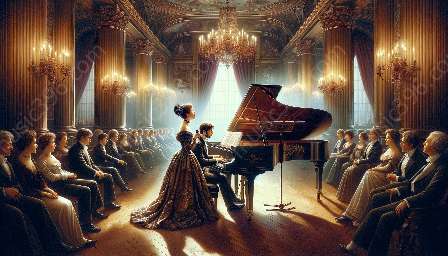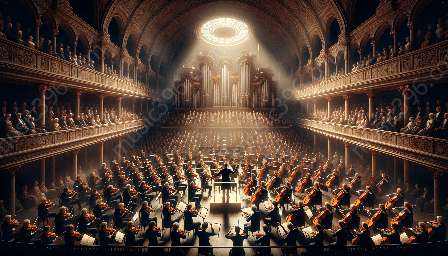Classical music, with its rich tradition and diverse styles, has been shaped by many different elements, one of which is improvisation. The role of improvisation in the performance of classical music has been significant, with its influence evident throughout history, in various forms and genres.
Understanding the role of improvisation in classical music performances necessitates diving deep into the historical context of the genre, tracing the evolution of improvisation and its impact on the musical compositions and performances. This exploration will shed light on how improvisation has played a crucial role in shaping classical music as we know it today.
The Historical Context of Classical Music
Classical music has a rich and complex history, spanning over many centuries and encompassing a wide array of musical styles and genres. Its origins can be traced back to the medieval and Renaissance periods, with significant developments occurring during the Baroque, Classical, Romantic, and contemporary eras.
During its early stages, classical music was not always performed as written compositions. Improvisation was a common practice among musicians, who would often embellish or alter the written score during performances. This improvisational approach allowed musicians to express their creativity and individuality, shaping the interpretation of the music in real-time.
Improvisation in Early Classical Music
In the early stages of classical music, improvisation was an integral part of performances. Musicians were expected to demonstrate their improvisational skills, adding ornamentation and variations to the written musical material. This practice was particularly prevalent in the performance of keyboard music, where performers would often improvise elaborate embellishments and cadenzas.
One of the most notable examples of improvisation in early classical music is found in the music of Johann Sebastian Bach. While Bach's compositions are revered for their intricate counterpoint and structural complexity, it is important to note that improvisation played a significant role in his performances. Bach himself was renowned for his improvisational abilities, often showcasing his virtuosity at the organ and harpsichord.
The Influence of Improvisation on Musical Forms
Improvisation also had a profound impact on the development of musical forms within classical music. The practice of improvising preludes, cadenzas, and variations contributed to the evolution of these musical structures, influencing the way composers composed and performers interpreted their works. Through improvisation, musicians were able to breathe life into the music, adding an element of spontaneity and individual expression to their performances.
The Evolution of Improvisation in Classical Music
As classical music continued to evolve, the role of improvisation underwent significant changes. The Baroque and Classical periods saw improvisation as an integral part of musical education and performance, with composers often leaving room for improvisational passages within their compositions. Musicians were expected to possess strong improvisational skills, allowing them to embellish and interpret the music according to the conventions of the time.
During the Romantic era, improvisation found a new level of prominence in classical music. Composers such as Franz Liszt and Frederic Chopin were renowned for their improvisational talents, often captivating audiences with their spontaneous and virtuosic performances. Improvisation became a hallmark of their artistic expression, blurring the lines between composition and performance.
The Decline of Improvisation and Its Resurgence
With the rise of the 20th century and the emergence of a more standardized approach to musical performance, the practice of improvisation gradually declined within classical music. Formalization and adherence to written scores became the norm, leading to a decrease in the tradition of improvisation among classical musicians.
However, in recent years, there has been a resurgence of interest in improvisation within classical music. Contemporary performers and composers are revisiting the art of improvisation, exploring new ways to integrate improvisatory elements into their performances. This revival has brought improvisation back into the spotlight, allowing musicians to reconnect with the expressive and spontaneous nature of classical music.
The Contemporary Significance of Improvisation
Today, improvisation continues to play a significant role in the performance of classical music. Musicians are exploring improvisatory techniques across various genres and styles, incorporating elements of jazz, world music, and experimental improvisation into their classical performances. This fusion of improvisatory practices has expanded the creative possibilities within classical music, adding a dynamic and innovative dimension to traditional repertoire.
Furthermore, improvisation has become an essential tool for contemporary composers, who often incorporate improvised sections within their compositions. This blending of written material and spontaneous improvisation has led to the creation of compelling and multidimensional works, offering audiences a unique and engaging musical experience.
Conclusion
The role of improvisation in the performance of classical music has been an integral part of its historical development and continued evolution. From its early roots as a fundamental practice in musical expression to its resurgence in contemporary performance, improvisation has left an indelible mark on classical music, shaping its forms, structures, and creative possibilities. As musicians continue to explore the boundaries of improvisation within classical music, the art form remains vital and relevant, offering new avenues for artistic expression and musical innovation.







